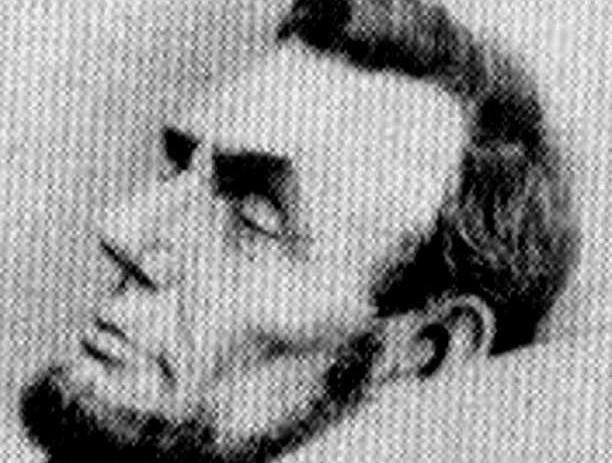Guest Columns
How Americans Mourned the Assassination of a Controversial Leader
Half of Americans hated Abraham Lincoln in life, and not everyone mourned his assassination – at first. Later, they did.

It is easy to forget how unpopular Abraham Lincoln was during his lifetime. In fact, he was hated by much of the country—not only in the South, which seceded after his election in 1860, but also in the North. Shortly after Lincoln moved into the White House in 1861, a New Jersey editor wrote privately that “Abe Lincolns election was received by us with disgust.” An Ohioan added, “the papers say, they are going to kill the new elected president.” Lincoln received death threats in the mail, and some Democratic newspapers openly called for his assassination.
Withering criticism of Lincoln during the War
Northerners routinely mocked and criticized their president. After Lincoln visited an army camp, one semiliterate New Yorker wrote that “old abe loked like a Shark more then like a man.” An Iowan called his administration “treacherous, imbecile and cowardly,” while a Long Island woman said he was “vain and weak, and low-bred.” Some considered Lincoln a traitor and even contemplated his death. A barely literate Ohio soldier wrote home that he “woddent vollenteer another hundred days to save [the Ohio governor’s] and old abe lincon Necks from the gallows.”
Although Lincoln’s stated purpose for waging the war was to preserve the Union – and thus prove to the world that republican government could survive – many of Lincoln’s critics saw him as disregarding the Constitution. Writing from Canada, a Philadelphian told his father “that the republican form of government in the United States is dead – and that we will never see another President.” Alluding to Lincoln’s controversial civil liberties policies, this writer added, “When a republican government rewards with a prison those who are politically opposed to it, and silences such newspapers as criticize its course or are opposed to it in principle, we may be sure that it is near its end.”
Lincoln didn’t cancel the election
Of course, Lincoln did not destroy democracy. To be sure, there were some unfortunate irregularities during some Civil War elections, but Lincoln never contemplated canceling or postponing the presidential election of 1864, even at the low points when he believed he would lose. (Dissatisfaction with Lincoln ran high during the summer of 1864 as Union armies were unable to capture Richmond and Atlanta.)
During the long, hot summer of 1864, many Union soldiers came out against Lincoln’s reelection. A New Jersey artillerist groused that “Old Abe the Butcher” was “ruining our Country” and waging war “to fill his pockets.” Only after prospects for Northern victory improved in September and October did this soldier, and many others like him, come to support Lincoln as the best hope for peace and reunion. “I am very sorry I ever denounced him as I did because I now truly believe he is worthy to be our President,” he wrote shortly before election day.
Lincoln’s assassination in April 1865 brought further transformation to the political atmosphere. Expressions of grief and personal loss were ubiquitous, even among many of Lincoln’s political opponents. “The army is feeling very sad and gloomy in consequence of President Lincol[n’]s death,” wrote a surgeon from Vermont. “We feel that we have lost a father and a friend and the country its head…. The sadness is general throughout the whole army.”
Not everyone mourned
But not everyone was unified in mourning. A Democrat in Pennsylvania was not sure “how I feel in regard to his assassination.” She resented that Republicans said Lincoln “has been murdered by the Democratic Party.” And so, although she felt “very sorry that such a wicked crime should be committed,” she was irritated “when we are slurred” as “entertaining the same feelings that the assassin did.”
Some white Southerners and Northern Democrats openly celebrated Lincoln’s assassination. A woman in upstate New York was asked to leave a friend’s home when she exulted, “It can’t be true, it is too good to be true.” And Union soldiers who rejoiced were set to “working on the most public streets of Chattanooga” with balls and chains attached to their ankles while wearing signs with the words “Assassination Sympathizer” printed in large letters “so that every person that can read or spell may see for what they are working there for.”
But later…
But in the end, most Americans recognized what a terrible loss their nation had suffered when Lincoln was shot. Even ex-Confederates realized that they had lost a statesman who was inclined toward mercy. In death, Lincoln came to be almost universally regarded as a great and good man. On April 15th, the day he died, a New Yorker wrote, “He is a good man and I believe has done what he could for the good of his Country.” A soldier from Pennsylvania noted that Lincoln “had a great & good heart.” And a veteran in Indiana observed, “I tell you our country has lost a grate & good man one witch will nevver be forgotton.”
Indeed, Lincoln’s assassination transformed the 16th president into a world-revered martyr who would never be forgotten. His leadership “in the midst of difficulties almost unparalleled,” wrote an Illinois surgeon, “won the admiration of the world,” and his death “is mourned, not only by his countrymen, but by all peoples.”
This article was originally published by RealClearHistory and made available via RealClearWire.
Jonathan W. White is a Professor of American Studies at Christopher Newport University and a fellow with the Jack Miller Center. He was co-recipient of the 2023 Gilder Lehrman Lincoln Prize (with Jon Meacham) for “A House Built By Slaves: African American Visitors to the Lincoln White House.” His latest book is “My Day with Abe Lincoln” (Reedy Press) which was illustrated by Christopher Newport University student Madeline Renaux.
-

 Accountability3 days ago
Accountability3 days agoWaste of the Day: Principal Bought Lobster with School Funds
-

 Executive1 day ago
Executive1 day agoHow Relaxed COVID-Era Rules Fueled Minnesota’s Biggest Scam
-

 Civilization10 hours ago
Civilization10 hours agoWhy Europe Shouldn’t Be Upset at Trump’s Venezuelan Actions
-

 Constitution2 days ago
Constitution2 days agoTrump, Canada, and the Constitutional Problem Beneath the Bridge
-

 Civilization1 day ago
Civilization1 day agoThe End of Purple States and Competitive Districts
-

 Christianity Today9 hours ago
Christianity Today9 hours agoSurprising Revival: Gen Z Men & Highly Educated Lead Return to Religion
-

 Civilization5 days ago
Civilization5 days agoThe devil is in the details
-

 Executive22 hours ago
Executive22 hours agoWaste of the Day: Can You Hear Me Now?








